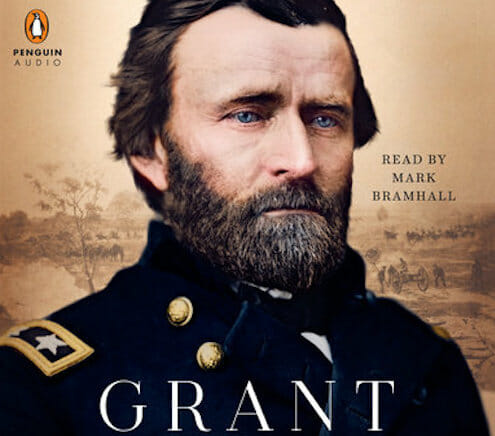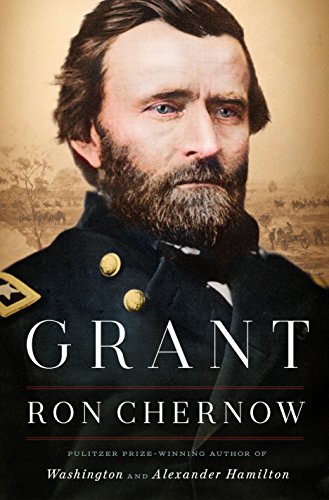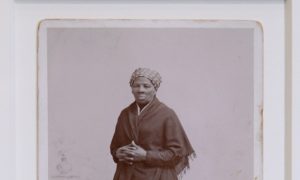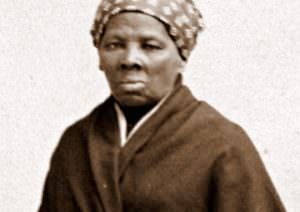Restoring Ulysses S. Grant to His Rightful Stature
Ron Chernow's biography, now in paperback, makes it clear: If Grant’s image doesn’t belong on Mount Rushmore, it should at least be acknowledged that if not for him, Lincoln’s might not be there. Penguin Random House
Penguin Random House

Purchase in the Truthdig Bazaar
“Grant”
A book by Ron Chernow
Reviewed by Allen Barra
Is Hiram Ulysses Grant—his name at birth—the greatest American? It’s a legitimate question, one given impetus by Ron Chernow’s huge new landmark biography, now out in paperback.
To begin with what should be obvious: Grant is the greatest general in American history. The scale of his achievements measured against adversity casts even commanders such as John “Blackjack” Pershing, George S. Patton, Douglas MacArthur and even Grant’s charismatic opponent, Robert E. Lee, in his shadow.
Whether Grant or Lee was the better military commander is something historians have never stopped debating (J.F.C. Fuller’s famous 1933 volume, “Grant and Lee: A Study in Personality and Leadership,” began to push opinion in favor of Grant among military scholars). In any event, Grant won the Civil War, and in winning he both saved the Union—no other general could have—and helped create the United States as we know it.
As a writer, he gave us one of the masterpieces of American historical prose, “The Personal Memoirs of Ulysses S. Grant,” which Edmund Wilson thought the finest book written by an American president. (This judgment, of course, was made before the works of Donald J. Trump. Insert emoji of choice.) Mark Twain, who published the “Memoirs,” regarded Grant’s prose to be superior even to Lincoln’s.
The military was in Grant’s blood; his great-grandfather fought in the French and Indian War, and his grandfather was a veteran of the Revolutionary War. The gene must have skipped a generation with Grant’s father, Jesse, a tanner by profession who was something of a rogue—a sly and opportunistic fellow who later in life tried on more than one occasion to cash in on his son’s fame. Hannah, his mother, was a strong, pious, taciturn woman; she did right by his education and upbringing but showed him little affection. “I never saw my mother cry,” Grant once said.
By Grant’s birth in 1822, his parents were settled in Ohio. He was named Hiram after Hannah’s father; the middle name was drawn out of a hat at a family party. Ulysses stuck. We know him as Ulysses S. (for Simpson) because of a clerical error when he enrolled at West Point. He liked the sound of the initials “U.S.” and so did, eventually, the press and the public.
Click here to read long excerpts from “Grant” at Google Books.
All the stories you’ve ever read about Grant’s failures before the military turn out to not only be true but understated. The first 38 years of his life were so uneventful that biographers have been frustrated by the lack of interesting anecdotes. It’s hard to imagine anyone who had such an impact on American history waiting so late in life to make an impression.
Grant served with distinction in the war with Mexico, a conflict that he considered immoral and unnecessary. Chernow maintains that he was scarcely alone in this belief; many prominent Americans, among them Henry David Thoreau, Ralph Waldo Emerson, Sen. Charles Sumner, John Quincy Adams and even Abraham Lincoln—were also against that war. Lincoln, Chernow writes, “denounced President Polk’s war in thunderous terms: ‘He is deeply conscious of being in the wrong … he feels the blood of this war, like the blood of Abel, is crying to Heaven against him.’ ”
For his part, “Grant insisted that the Civil War was ‘largely the outgrowth of the Mexican war. Nations, like individuals, are punished for their transgressions.’ ” The Mexican war, Chernow writes, was “a huge bonanza for the United States. … The U.S. gained Texas with the crucial Rio Grande boundary as well as New Mexico and California … Utah, most of Arizona and New Mexico, and part of Colorado.”
The struggle over these territories between the pro-slavery and the free political factions led to the death of hundreds of thousands in the Civil War and propelled Ulysses S. Grant into history.
An obscure officer in 1861 when Confederates fired on Fort Sumter, Grant shot through the ranks of the U.S. Army with astonishing speed, as genuine a testament as exists in American history to the country’s ability to promote and reward competence. Grant’s campaigns in the western theater of the war, along and down the Mississippi River, presaged modern warfare, and while the eastern papers paid more attention to the Army of the Potomac’s massive failures against Lee’s Army of Northern Virginia, Grant’s incredible campaign in the swamps and scrub around Vicksburg shut the Mississippi off to the Confederacy and may have been the war’s most important military action.
He invented the concept of an army living off the land, which enabled him to cut loose from fragile supply lines; Sherman’s application of this strategy in his march through Georgia and South Carolina shortened the war by months and perhaps a year. Grant righted the Union position in Tennessee and then, defying a hostile press, finally defeated Lee in Virginia the only way it could have been done—by sheer tenacity.
Despite the reputation he had made during the war as “Unconditional Surrender” Grant, his magnanimity toward Lee and the Confederates was worthy of Lincoln’s sentiments—“With malice toward none, with charity for all.”
It’s impossible to read the first 500 or so pages of “Grant” without empathizing with its subject, and thus it’s difficult to read the rest without a growing sense of trepidation as Grant is drawn into post-Civil War politics. You almost wish the book would end before he was elected president in 1868.
His two terms are remembered today primarily for financial scandals and for the ineffectualness of the federal government to prevent the Klan from suppressing the political gains of blacks. Some of his administration’s problems were due to Grant’s lack of tact: “On Reconstruction issues,” Chernow writes, “Grant operated from deep knowledge and long experience, but when it came to the niceties of diplomacy, he was an amateur at sea. …”
But many of his administration’s failures were beyond Grant’s control, created by the decay of ethics that came with the economic postwar boom that caused Mark Twain to label it “The Gilded Age.” The wave of corruption would swamp even Grant himself when his savings were wiped out in a Ponzi scheme run by his son’s business partner, Ferdinand Ward.
The racial situation was hopeless. Grant could make no headway helping blacks in the South without incurring resistance from Northern conservatives who accused him of stifling states’ rights. At any rate, most Northern states were no more interested in advancing black Americans than were Southerners. One honestly wonders whether Lincoln would have had any more success with these issues had he lived, and if Grant bore the brunt of a maelstrom of ills that no one could have foreseen or solved.
As Chernow points out, though, Grant’s accomplishments as president were not insignificant: “As the first president to govern after the Fifteenth Amendment, he guaranteed the exercise of brand-new black voting rights and opposed the spate of domestic terrorism it engendered. He had been a good steward of the nation’s finances, having slashed taxes, trimmed debt, and watched the trade balance turn from deficit to surplus. He had shown that government could make good on its pledge to repay war debt and restore American credit.”
Grant initiated the modern national parks system, and if he did not succeed in establishing a policy of fairness to Native Americans, he at least made a genuine effort. Before he left office, “Grant received a delegation of Choctaws, Chickasaws, Cherokees, and Creeks, who said, ‘On the eve of your retirement from office, we desire to express our appreciation of the course you have pursued towards our people while president of the United States—At all times just and humane you have not failed to manifest an earnest wish for their advancement in the arts and pursuits of civilized life, a conscientious regard for their rights and the full purpose to enforce in their behalf, the obligations of the United States.’ ”
While president, Grant appointed his friend and staff officer Eli S. Parker, a full-blooded Seneca Iroquois, as head of the Bureau of Indian Affairs. Ultimately, Chernow thinks, “He got the big issue right during his presidency, even if he bungled many of the small ones.”
Almost certainly Grant was our greatest ex-president. After leaving the White House, he felt, said a friend, “like a boy getting out of school.” Shortly after, he and wife, Julia, embarked on a two-year tour of Europe, the Middle East and Asia. The Japanese showed unconditional reverence for Grant: “How you crushed a rebellion, and afterwards ruled a nation in peace and righteousness, is known over the whole world.” The emperor called him “the unassuming bourgeois Civil War hero and president.”
Mark Twain, perhaps Grant’s most fervent admirer, praised him for winning a terrible battle with alcohol: “He had set out to conquer not the habit but the inclination—the desire. He had gone at the root, not the trunk.”
But nothing in Grant’s amazing life revealed his courage so much as his furious battle to complete his memoirs in order to provide for his family after a diagnosis of throat cancer. He had no illusions about beating the cancer. “My chances, I think, of pulling through this are one in a hundred,” he said about six months before his death. Queen Victoria and British Prime Minister William Gladstone sent telegrams of encouragement.
Matthew Arnold, who should have known better, sniffed that in his “Memoirs,” Grant wrote “an English without charm and high breeding,” though in a more charitable moment he found them full of “sterling good-sense,” and Grant’s prose “saying clearly in the fewest possible words what had to be said, and saying it, frequently, with shrewd and unexpected terms of expression.” (Qualities, one thinks, that should atone for a lack of high breeding.)
Twain found them to be “a great, unique and unapproachable literary masterpiece.” The “Memoirs” can lay claim to being the best-selling book of the 19th century and earned Julia Grant the amazing amount of $450,000 in royalties—around $15 million in today’s currency.
It isn’t clear why Grant’s reputation isn’t greater today. Perhaps it’s the lingering impression left by his bouts with alcohol, perhaps the failure to lift black rights along with those of whites during Reconstruction. Walt Whitman saw him more clearly than we do: “Out of all the hubbub of the war, Lincoln and Grant emerge as the towering figures. … I think this is the greatest lesson of our national existence so far.”
Though it’s not likely to inspire a Broadway musical, Chernow’s accomplishment with “Grant” is perhaps even more monumental than his 2004 biography of Alexander Hamilton. For one thing, the material is far more voluminous: the Mexican War and the expansion of the U.S., the Civil War, Reconstruction, and Grant’s two presidential terms. At around 1,000 pages of text, “Grant” never seems padded or unfocused. For another, Chernow is righting an important historical wrong and restoring to Grant the stature that was accorded to him by his contemporaries. Can anyone claim better character references than Lincoln, Twain and Whitman?
If Grant’s image doesn’t belong on Mount Rushmore with Lincoln, it should at least be acknowledged that if not for him, Lincoln’s might not be there at all.
Your support matters…Independent journalism is under threat and overshadowed by heavily funded mainstream media.
You can help level the playing field. Become a member.
Your tax-deductible contribution keeps us digging beneath the headlines to give you thought-provoking, investigative reporting and analysis that unearths what's really happening- without compromise.
Give today to support our courageous, independent journalists.




You need to be a supporter to comment.
There are currently no responses to this article.
Be the first to respond.